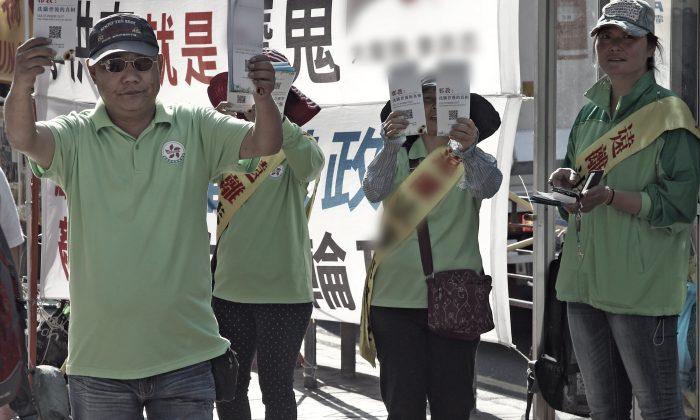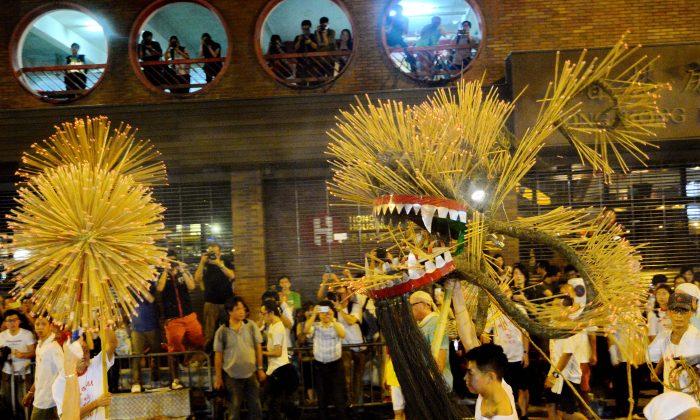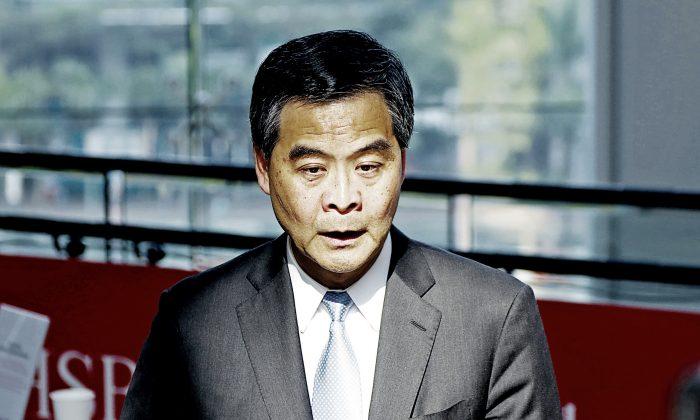HONG KONG—Six owners of Hong Kong-based transportation companies have traveled to Beijing to appeal for the monetary and property losses they suffered when their ships were ransacked offshore by the Chinese police.
An open letter from the business owners written before their departure for Beijing stated that police from Jieyang City, Guangdong Province, China, sent boats near Hong Kong to rob ships on Oct. 11, 1997, and confiscated shipments from seven companies.
The business owners are members of the Hong Kong (China) Investment Rights Concern Group. They own six of the seven Hong Kong companies that suffered losses in the incident.
The owners said that Hong Kong Marine Department had categorized this incident as a robbery. The Vietnamese government has called five meetings and sent a delegation to the Jieyang City police department to negotiate the matter. Over the last 12 years, the business owners have appealed to various government entities without success.
One of the owners said: “It is extremely difficult to fight corruption in China. We are willing to pay any price for our legal rights!”
The owners arrived in Beijing to appeal to the Chinese regime on Nov. 11, 2009. They had been scheduled to hold a press conference at the Office of the Government of the Hong Kong Special Administrative Region in Beijing (HKSAR) at 2:30 p.m. on Nov. 12. According to one of the owners, Mr. Liang, the HKSAR office refused to let them use the venue, and the press conference was canceled.
The business owners planned to seek meetings with Chinese regime officials, such as Premier Wen Jiabao, in their effort to continue to fight for their case.
‘There Are Somali Pirates in China Too’
Mr. Liang said that since their efforts over the years had not produced any results, they had no choice but to travel to Beijing to appeal to the central Chinese authorities.
In August 2009, the owners made their first trip to appeal in Beijing and finally got their first letter from the Jieyang City police station. To their disappointment, the letter stated that it was legal for the police to confiscate and auction off seized goods. The letter also said that they would receive a response in three months.
According to Liang, they had not received a response in over three months, and therefore, went to Beijing again. They wanted everyone to know that there are pirates in China, too.
“They used five boats near Hong Kong to force our ship off course. The ship was sent to Jieyang City for over 20 days. The police sold all of the goods on the ship. We lost a lot of money. Now we have come to Beijing to capture the pirates. We want the government to know that there are Somali pirates in China, too, and they are located in Jieyang,” Liang said.
Liang also said that he would fight for his rights until the end. He hoped to meet with the Premier Wen Jiabao, leaders of the Central Committee for Discipline Inspection, and Hong Kong and Macao Affairs Office of the State Council to discuss the incident and request just compensation.
“Since their police took our goods, they must pay for it,” Liang said.
Losses Not Limited to Hong Kong
Ms. Lu Weiping, the chairperson of the Hong Kong (China) Investment Rights Concern Group, said that it was common for Hong Kong businesses to be robbed or cheated in mainland China, and the victims’ appeals have fallen on deaf ears.
“The Chinese regime recently said that it wanted to solve the appeal issue. However, the reality is that the [Chinese] authorities pressure those who appeal, but turn a blind eye to those who truly violate the law. We are talking about actions by the regime, not individual officials or companies,” said Lu.
Lu also said that business owners from all over the world, not just from Hong Kong, have been robbed and cheated in China. The rights group plans to contact business owners from other countries to organize a joint appeal for a just compensation in Beijing.



